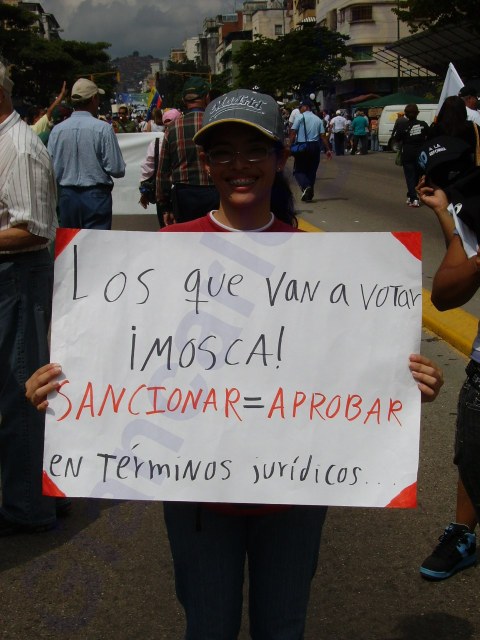Letter to Peter Maurer - President of the International Committee of the Red Cross
Caracas, June 2, 2015
@ResisteciaV58
Labels: Hunger strike, Peter Maurer, political prisoners., Red Cross, Students, Venezuela
www.vdebate.org works to strengthen Venezuelan Democracy. Vdebate.org will work with other organizations and volunteer experts, in defense of Venezuelan Human, Political, and Civil Rights. Vdebate.org is not affiliated to any political party.
Labels: Hunger strike, Peter Maurer, political prisoners., Red Cross, Students, Venezuela
Labels: Human Rights Violation, narcotrafficking, Students, USA, Venezuela, VEPPEX
Labels: Foreign Relations, Human Rights, Marco Rubio, Robert Menendez, S2142, Students, US, Venezuela, Violations
Labels: #23M, Nicolas Maduro, Regimen, Students, Why students in Venezuela Protest
Labels: Human Rights, Maracay, Nicolas Maduro, Police, Protest, Students, Venezuela, Violations
Labels: Hugo Chavez, Human Rights, struck out, Students, Twitter
Labels: Hugo Chavez, Protest, RCTV, Strikeout, Students

Labels: Hugo Chavez, Students, terrorists, Twitter, Violations
Labels: CaracasNine, Students, videos
Labels: CNE, Constitutional reform, Enrique ter Horst, Students
Labels: Constitutional reform, Dictatorship, Students

CARACAS, Venezuela, Nov. 8 -- University leaders accused the Venezuelan government Thursday of provoking violence to justify military occupations of campuses where students are leading protests against President Hugo Chávez.
Gunmen opened fire on students returning from a peaceful march Wednesday in which 80,000 people denounced a constitutional referendum, planned for December, that would expand Chávez's power. At least eight people were injured in the incident in Caracas, including one by gunfire, officials said.
Justice Minister Pedro Carreño blamed students, opposition leaders and the news media for the violence. "We want to urge the media to reflect, to stop broadcasting biased news through media manipulation, filling a part of the population with hate," Carreño said in an address Wednesday night.
Higher Education Minister Luis Acuña, meanwhile, offered to send in troops to quell the violence, but university authorities quickly rejected the offer as an attempted power grab.
"We won't fall into the trap," said Eleazar Narváez, rector of the Central University of Venezuela.
Chávez's opponents say the president has long wanted to end the autonomy of Venezuela's public universities, most of which are run by rectors associated with the opposition who defeated Chávez followers in campus elections.
Street demonstrations led by university students have spread to at least six cities around Venezuela, and organizers vowed to continue protesting despite crackdowns by security forces and clashes with government supporters. The marches have been mostly peaceful, although there have been several clashes in which students threw rocks and police fired plastic bullets at demonstrators.
On Wednesday, photographers for the Associated Press saw at least four gunmen -- their faces covered by ski masks or T-shirts -- firing handguns at a crowd of government opponents returning to the Central University of Venezuela from the march
Labels: Constitutional reform, Hugo Chavez, Students
Labels: Constitutional reform, injustice, Students
 Sancionar=Aprobar
Sancionar=Aprobar  Police
Police
Don't touch my kids, they are not alone
Labels: Constitutional reform, Pictures, Protest, Students

Labels: Constitutional reform, Protest, Students
 Riot police officers protected themselves Thursday as university students protested in Caracas, Venezuela.
Riot police officers protected themselves Thursday as university students protested in Caracas, Venezuela.Labels: Freddy Guevara, Riots, Students, Venezuela
Labels: Constitutional reform, Fox News, Maria Conchita Alonso, Students